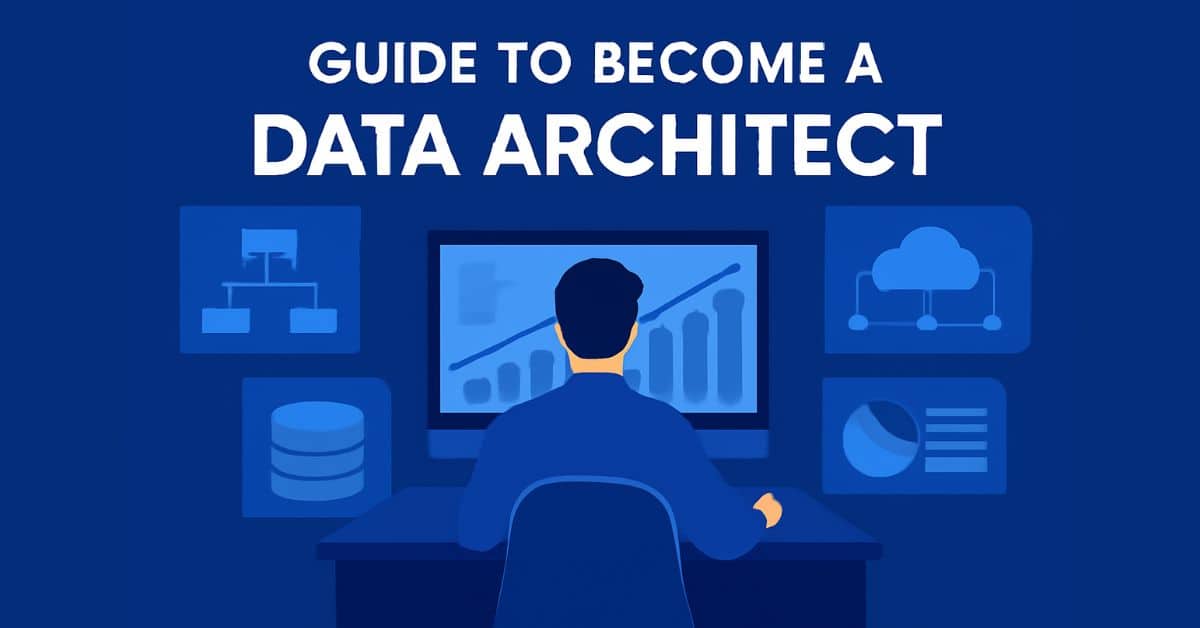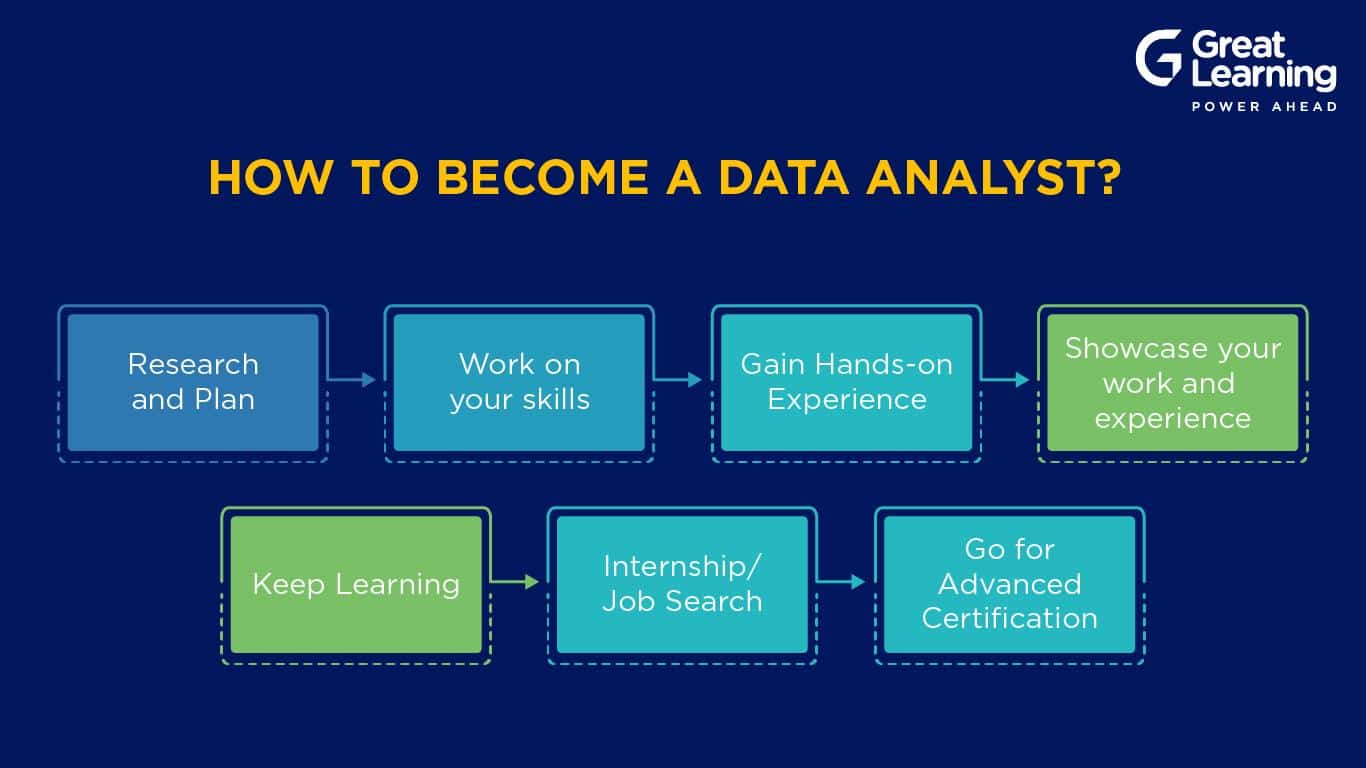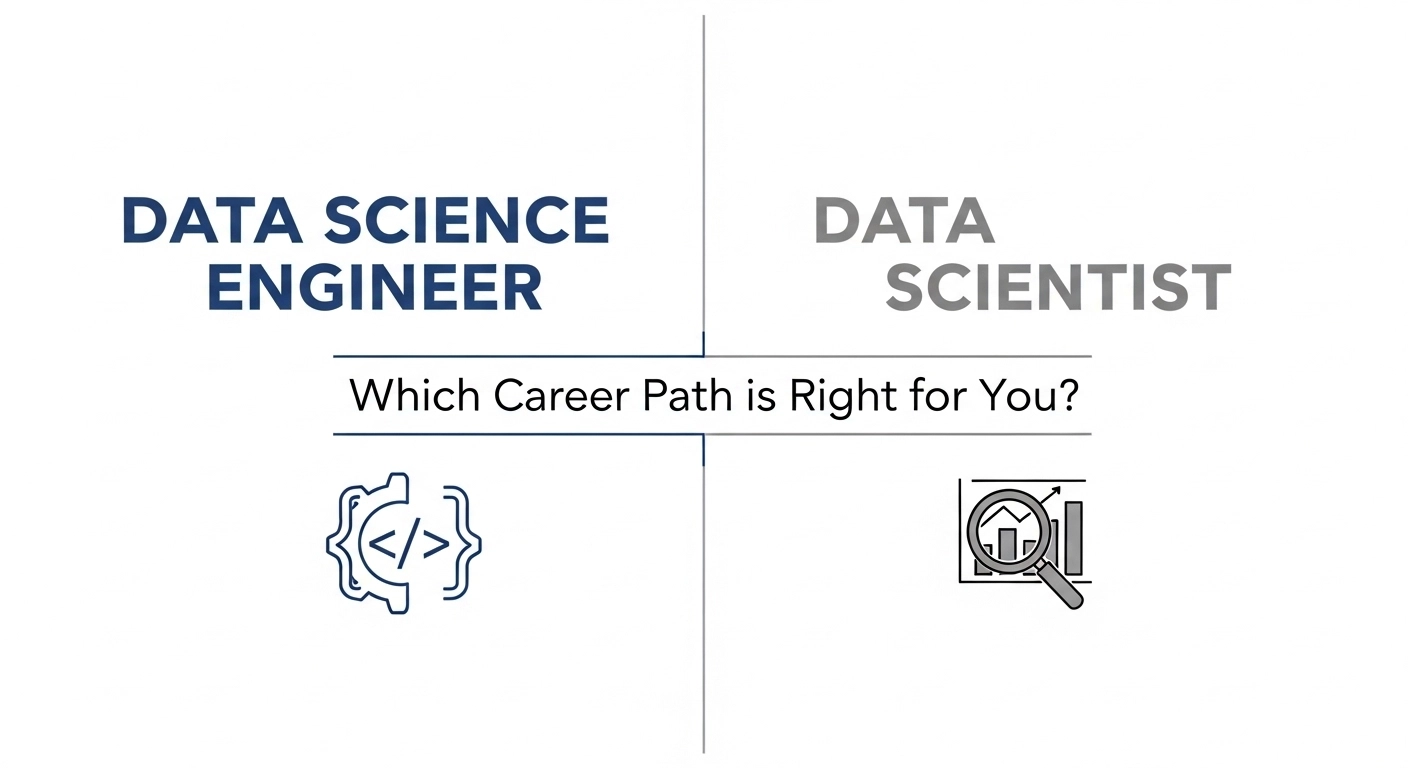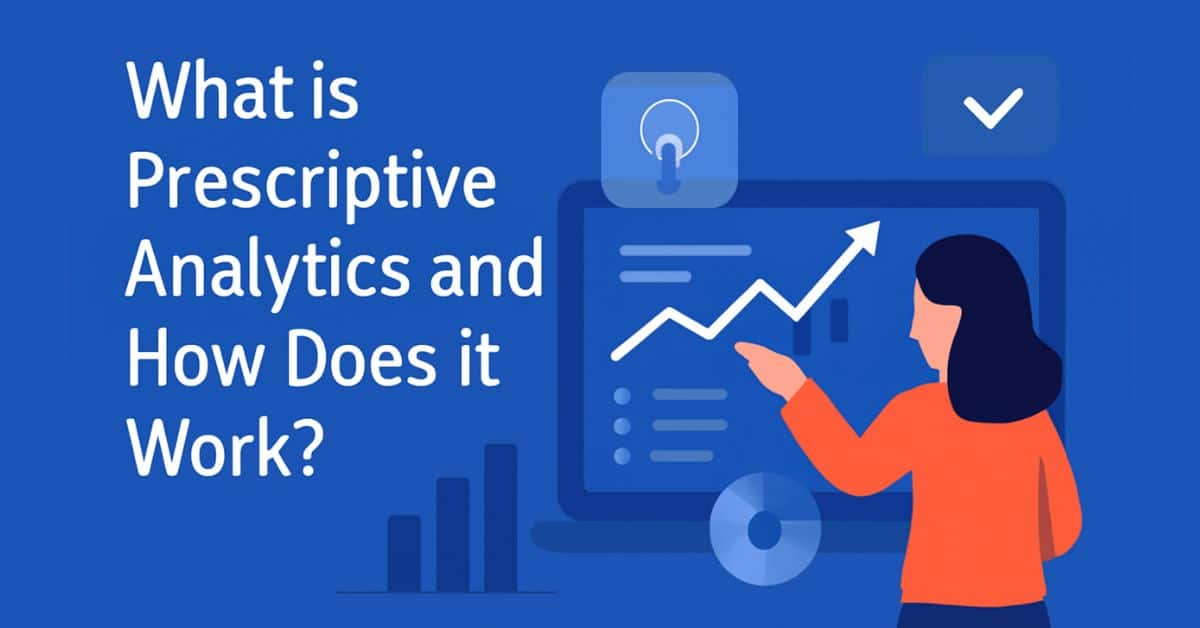Role Definition
A Data Architect builds and controls the organisation of databases and information systems to guarantee the optimum storage, accessibility, and interrelation of data. They draft blueprints that inform the construction and implementation of secure, adaptable, and robust solutions for information.
- Global Average Salary: $114,600 - $196,000
- Average Salary in India: ₹20–35 LPA for mid-to-senior-level professionals;
Entry-level roles may start at ₹6–10 LPA.
Disclaimer: Salary ranges vary based on experience, location, industry, and company size.
Responsibilities of a Data Architect
- Building detailed and expandable data models that characterise the adequate storage, access and connection of the data in different systems.
- Developing strong systems of combining data that are provided across multiple sources while sustaining the quality, consistency, and accessibility of the data.
- Collaborating with cross-functional teams to realise data needs, translate the organisational goals into detailed technical requirements, and align data solutions to organisational goals.
- Incorporating security measures that are geared toward securing sensitive data, including encryption, access control, and the use of backup systems.
- Ensuring the assessment of multiple data storing technologies (e.g., cloud, on-premise, hybrid) and selection of solutions that best suit the organisation in terms of the volume of data, use patterns, scalability requirements, and costs.
- Tracking database operations to spot bottlenecks, inefficiencies, and/or failures, and implementing techniques of performance tuning on the database, including indexing, query optimisation, and storage management.
Common Industries and Environments
- Finance & Banking: Handles large volumes of sensitive financial data for secure processing.
- Healthcare: Manages patient data across multiple systems with a focus on maintaining privacy and ensuring compliance.
- E-commerce: Supports personalisation and real-time analytics by managing transactional and behavioural data.
- Telecommunications: Manages large-scale customer and usage data to optimise services.
- Government & Public Sector: Ensures centralised, secure storage for critical citizen data.
- Technology & SaaS Companies: Build a scalable data infrastructure to support product features and analytics.
Key Skills Required
Technical Skills:
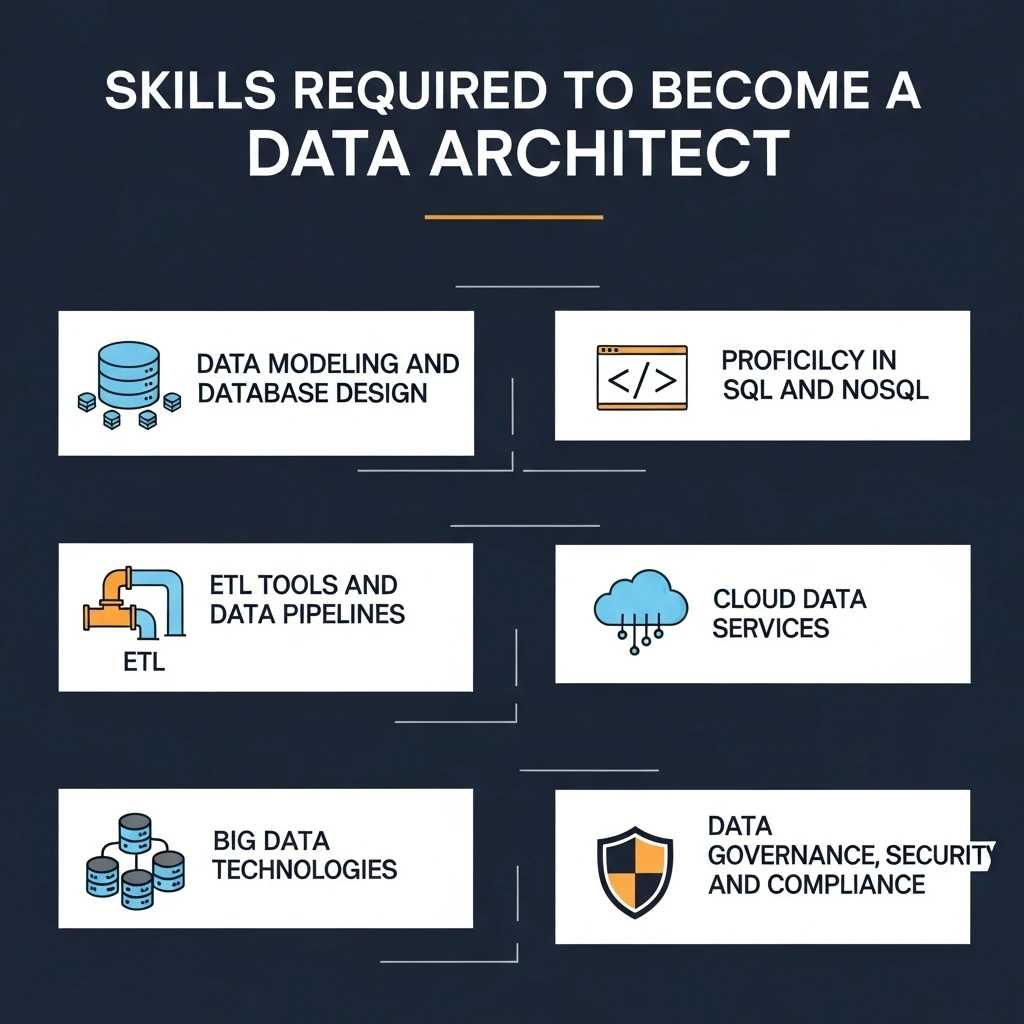
- Data Modeling and Database Design: Ability to design robust data structures using tools like ER diagrams and schemas such as star and snowflake models to support analytical and transactional needs.
- Proficiency in SQL and NoSQL: Strong command of SQL databases like PostgreSQL for structured data and NoSQL databases like MongoDB and Cassandra for unstructured or semi-structured data.
- ETL Tools and Data Pipelines: Hands-on experience with ETL (Extract, Transform, Load) tools such as Informatica and Talend to move and transform data from various sources into usable formats.
- Cloud Data Services: Familiarity with cloud-based data warehousing and analytics platforms like Amazon Redshift, Google BigQuery, and Azure Synapse Analytics for scalable and efficient data processing.
- Big Data Technologies: Understanding of distributed computing frameworks like Hadoop and Apache Spark to manage and process large-scale datasets across multiple nodes.
- Data Governance, Security, and Compliance: Knowledge of best practices and frameworks for ensuring data privacy, security, and compliance with regulations such as GDPR and HIPAA, including access controls and auditing.
Soft Skills:
- Problem-Solving and Analytical Thinking: Ability to approach complex data challenges logically, identify patterns, and design effective data solutions.
- Communication and Stakeholder Management: Clear and concise communication skills to translate technical findings for non-technical stakeholders and collaborate with cross-functional teams.
- Project Planning and Documentation: Proficiency in organizing tasks, setting timelines, and maintaining comprehensive documentation to ensure long-term maintainability and team alignment.
- Business Acumen: Understanding how data supports broader business objectives, enabling more strategic decisions and creating measurable value through data initiatives.
Courses to Get These Skills
Excel for Data Analysis
Sharpens your data analysis skills using a widely used tool, which is particularly useful for early-stage modelling and stakeholder communication.
Azure Cloud Essentials
Teaches cloud platform fundamentals, which are critical for deploying and managing enterprise-scale data solutions.
Cloud Computing Architecture
Helps you understand cloud infrastructure, which is essential for designing modern, distributed data systems.
Data Analytics SQL Course
Strengthens your SQL skills, a core requirement for querying and manipulating structured data as a Data Architect.
Oracle SQL
Prepares you to work with enterprise-level databases, commonly used in large-scale data architecture environments.
Gaining Practical Experience
- Apply practical learning to real datasets (including Kaggle and the UCI Machine Learning Repository) to learn how complex and varied data is. Such practical work makes you learn how to clean, organize, and analyze various types of data because it is an essential skill in the job of a Data Architect.
- Create personal projects: e.g. create a data warehouse of an online store. Such projects can enable you to practice some design principles with ETL pipelines and test performance tuning in a safe place.
- Intern, and freelance as a data engineer or data analyst to establish both professional credibility and technical competence.
- Participate in open-source data projects to work on a joint project with other data experts and build useful tools or platforms. This not only strengthens your portfolio but it also gives you a better grasp on how scalable and collaborative data architecture can be done.
Your Educational & Learning Path
- Bachelor’s Degree:
Start with a Bachelor’s degree in Computer Science, Information Technology, Software Engineering, or a related technical discipline. This builds a strong foundation in programming, data structures, algorithms, and database management. - Master’s Degree (Optional but Valuable):
Pursuing a Master’s degree in fields like Data Science, Information Systems, Business Analytics, or Big Data Engineering can deepen your expertise in data modeling, machine learning, and data architecture, making you more competitive for senior roles. - Professional Experience (3–5 Years):
Gain 3 to 5 years of hands-on experience in data-centric roles such as:
Data Engineer – Designing and maintaining data pipelines and architectures.
BI Developer – Building dashboards and reports to support data-driven decision-making.
ETL Developer – Developing workflows to integrate data from various sources.
Cloud Data Specialist – Working with cloud platforms for scalable data storage and processing.
Online Courses & Bootcamps
Premium Courses
Advanced Statistics for Data Science
Builds your statistical reasoning, enabling you to better support analytical data models and insights generation.
PG Courses
MIT Professional Education's Data Science Course
Offers a strong foundation in data science principles, critical for designing scalable and analytical data architectures.
Post Graduate Program in Data Science and Business Analytics
Equips you to align data solutions with business objectives, a key competency for data architects working across departments.
Self-study and Practice
1. Read books like
The Data Warehouse Toolkit by Ralph Kimball
Data Architecture: A Primer for the Data Scientist by W.H. Inmon & Daniel Linstedt
The Data Model Resource Book (Volumes 1–3) by Len Silverston
2. Practice designing schemas and data pipelines
Use tools like dbdiagram.io or DrawSQL to sketch relational schemas and simulate data flows. Regular practice sharpens your ability to create scalable and maintainable data structures.
3. Simulate enterprise data problems and create solution architectures
Prepare mock case studies, e.g., based on the management of retail inventories or real-time fraud detection, in order to create end-to-end data applications. This assists in filling the gap between theory and practice.
4. Follow the documentation for cloud platforms and open-source tools
Explore official documentation, such as the AWS Data Lake Guide, Azure Data Architecture Guide, and Apache Airflow. Staying current with platform documentation helps you apply tools effectively and troubleshoot with confidence.
5. Build practical knowledge via Data Science Projects
Get hands-on project experience and build practical knowledge of managing real-world datasets and pipelines.
Relevant Tools & Platforms
Data Modeling:
ETL Tools:
Databases:
Visualisation (optional):
Blogs and Articles
- Top Database Projects to Work On
- Top Data Analytics Project Ideas
- Top DBMS Interview Questions
- Top Data Modeling Tools You Must Know
- SQL Commands
- Comparing AWS and Azure for Data Architecture Decisions
FAQs
Q: Do I require a computer science degree to become a data architect?
A: It can be of some assistance, yet numerous specialists can switch over to relevant spheres (IT, math, or engineering) by having appropriate experience and certifications.
Q Is coding a required skill of data architects?
A: Yes, data pipelines and SQL, in particular, and scripting. Knowledge of such languages as Python or Scala is an advantage.
Q: What is the duration of the course to become a data architect?
A: About 5-7 years after taking up data type jobs, based on experience and the rate of learning.
Q: What is the difference between a data engineer and a data architect?
A: Data engineers construct the systems; data architects design the plan and see that it fits up with the business needs.
Q: Is certification required?
A: Maybe not, but they can increase credibility and employment chances in a great deal.
